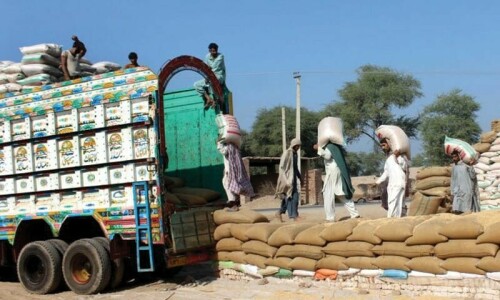LAHORE: Child domestic labour was discussed at a provincial consultation by the Search for Justice in collaboration with the Labour and Human Resource Department and the National Commission for Human Rights on Friday where participants said that labour within the domestic sphere was tantamount to modern-day slavery.
Iftikhar Mubarik said that in June 2016, UN Committee on the Rights of the Child (UNCRC) had issued concluding observations recommending Pakistan to establish mechanisms for systematic and regular monitoring of workplaces in order to prevent abuse and exploitation. The committee also recommended that Pakistan develop programmes and mechanisms to identify and protect child victims of forced labour, particularly bonded labour as well as child labour in informal sector, including domestic work. Strengthen the labour inspectorate with all the necessary support, including child labour expertise, with a view to enabling them to monitor effectively at state and local levels the implementation of labour law standards and to receive, investigate and address complaints of alleged violations.
The UN committee recommends that Pakistan take all measures necessary to put an end to child labour through rigorously enforcing the laws on child labour and strengthening labour inspection mechanisms. During the Universal Periodic Review in November 2017, Pakistan accepted a key recommendation to strengthen monitoring its domestic labour condition to eliminate practice of bonded labour and unlawful child labour. The abuse and exploitation of children as modern-day slaves cannot continue to be tolerated.
Besides, this Pakistan has also pledged post 2015 development agenda under Sustainable Development Goals (SDGs) target 8.7, said Rashida Qureshi from the Child Rights Movement, Punjab, which called on the global community to ‘take immediate and effective measures to eradicate forced labour, end modern slavery and human trafficking and secure the prohibition and elimination of the worst forms of child labour by 2030.
Participants agreed that child domestic labour was a clear violation of children’s rights. The number of children exploited in households is unknown because of the hidden nature of the work. Children exploited in domestic service are paid little or nothing, are malnourished, are very vulnerable to further abuse and exploitation, and do not attend a school, which is in conflict with fundamental rights to education guaranteed under Article 25-A of the Constitution of Pakistan and The Punjab Free & Compulsory Education act 2014, said Qureshi.
Dr Sohail Shahzad, additional secretary of labour & human resource department, said that keeping in view the seriousness of child domestic labour, the department in consultation with stakeholders had drafted a law “The Punjab Domestic Workers Act, 2017” with a view to protect the rights of the domestic workers.
The section three of the law states ‘No child or person who has not attained 18 years of age shall be required or allowed to work in household in any capacity’.
Published in Dawn, June 9th, 2018












































Dear visitor, the comments section is undergoing an overhaul and will return soon.